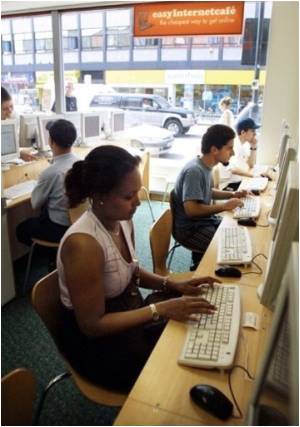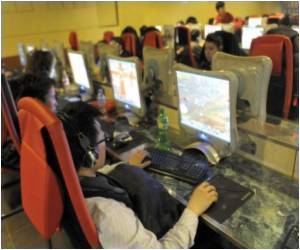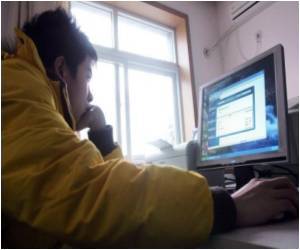Officials in the Asia-Pacific region have begun to keep a strict vigil on internet use and are trying to regulate what people say and do online.

A massive cyber attack has crippled the web in military-ruled Myanmar ahead of Sunday's controversial election, IT experts say, raising fears of a deliberate communications blackout for the vote.
But moves to rein in Internet freedoms in other countries in the region are often presented as being well intentioned.
Australia proposes introducing an Internet filter to block sites containing material such as rape, drug use, bestiality and child sex abuse.
Prime Minister Julia Gillard has defended the plan as a moral move which will bring the web into line with TV and film which have long been censored by the state.
"My fundamental outlook is this: it is unlawful for me as an adult to go to a cinema and watch certain sorts of content, it's unlawful and we believe it to be wrong," Gillard said recently.
Advertisement
Yet the plan has been heavily criticised as setting a precedent for censorship and has even been attacked by web giants Google, Yahoo! and Microsoft.
Advertisement
In another Asia-Pacific democracy, the Philippines, several bills have been filed seeking restrictions on the Internet, mainly focused on pornography and the trafficking of women.
And in Thailand, a wide-ranging campaign of government censorship has shut down thousands of Internet sites.
It is a reflection of the deep political divide in the country, where 91 people died and nearly 1,900 were hurt in clashes between Red Shirts and troops during two months of protests, which ended with a bloody army crackdown in May.
Thousands of web pages have also been removed in recent years on the grounds that they were insulting to the Thai royal family.
In April, a Red Shirt sympathiser was arrested and charged for allegedly insulting the monarchy on Facebook -- a serious crime punishable by up to 15 years in jail. He remains in detention awaiting possible trial.
The editor of the popular Prachatai website could face up to 70 years in jail after she was arrested on charges of insulting the monarchy and breaching computer law -- for comments posted by users of the site.
John Palfrey, co-director of the Berkman Center for Internet and Society at Harvard University, says online censorship and surveillance are growing around the world.
"This increase in control is taking place concurrently with the growth of the role that the Internet and digital media are playing in the ways that people live and societies function," he told AFP.
"Oftentimes, these online controls grow out of well-meaning online protections designed to help keep children safe.
"But the same mechanisms that we use to keep our children from unwanted content and contact can be used to keep dissidents from communicating with one another or with the world outside their own society.
"The tools that prevent harmful forms of pornography from being published can also keep a political manifesto from reaching its intended audience.
"The same tools that bring a terrorist to justice before he can harm his targets can also be used to put a muck-raking journalist in prison for something that she said in an email or a web chat."
Sometimes calls for censorship of the Internet are for religious reasons.
Hundreds of Indonesian Islamists rallied in central Jakarta in June to demand the stoning to death and public caning of celebrities who allegedly appeared in homemade sex videos circulating online.
About 1,000 protesters led by radical group Hizbut Tahrir shouted "Allahu akbar" (God is greater) and brandished black flags and banners with slogans such as "Arrest those who commit promiscuous sex".
Hizbut Tahrir spokesman Mohammed Ismail Yusanto said the Internet was a threat to Islamic values in the world's most populous Muslim-majority country.
"The widespread circulation of the celebrity sex videos shows the bad side of uncontrolled information technology, which will surely become one of the most terrible destroyers of morality," he said.
"Based on sharia law... those who are married should be stoned to death and the unmarried should be caned 100 times in public.
"With that kind of punishment it is guaranteed promiscuous sex won't spread wildly like it is now."
Radical groups like Hizbut Tahrir have little popular support among Indonesia's 240 million people in a state which is constitutionally secular and culturally moderate.
But President Susilo Bambang Yudhoyono has backed calls for tighter controls on the Internet in response to the sex video furore and has warned that the nation risked being "crushed" by the information technology "frenzy".
While China is a major censor of the Internet in the region, communist Vietnam has also cracked down, arresting bloggers who have criticised the government's relationship with Beijing.
"Some of the most advanced forms of Internet censorship and surveillance are carried out in Vietnam, following the lead of neighbouring China," said Harvard University's Palfrey.
"Over the next five to ten years, I see an escalating struggle between states that wish to control the information environment and citizens who wish to communicate privately and freely with one another.
"I expect that we will see substantial growth in the ability of states to listen in on conversations online."
Source-AFP















